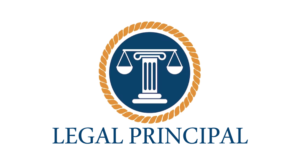Attending a reputed law school is merely the first step on the road to becoming a successful lawyer when it comes to pursuing a legal education. Practical experience is equally important in moulding a law student’s path to professional competence in today’s competitive legal environment. In-depth discussion of the value of college of law work experience and how it might improve their entire educational experience is provided in this article.
Theory and Practice at the Crossroads
A college of law is a center for the academic information, case studies, and legal ideas that serve as the cornerstone of legal comprehension. The real learning, however, happens when this knowledge is put into practice. Students have the chance to connect academic ideas with practical situations through work experience. Students get insights into the nuances of law that textbooks can’t fully convey by immersing themselves in real-world legal settings.
Active Learning
Gaining practical learning experience while attending a law school is one of the benefits of work experience. Students are exposed to actual legal cases, client contacts, and courtroom procedures through internships, clerkships, or legal clinics. Through this exposure, they are given the chance to observe the nuances of legal practice up close, which aids in the development of a more thorough grasp of the field.
Construction of Professional Networks
Any successful career is built on networking, and the legal profession is no exception. Opportunities for college of law work experience give students the ability to network with peers, mentors, and legal experts. These contacts may lead to possibilities for employment, internships, and priceless advice. Early professional network building can have a big impact on a student’s eventual career path.
skill improvement
Work experience is a vital tool for developing crucial legal abilities. Law students can hone their research, writing, negotiating, and communication abilities through practical training. Students who actively participate in legal work improve their practical skills and develop the confidence necessary to succeed in a cutthroat legal environment.
Enhancing Your Resume
A college of law degree may not be enough to get desired opportunities in the competitive work market of today. Employers prefer applicants with a track record of real-world experience, and any employment experience you have while attending law school can help you stand out from the competition. A comprehensive resume that lists internships, clerkships, and other professional experiences shows your dedication to the industry and your capacity to meet the rigors of legal practice.
Looking into Specializations
Corporate law, criminal law, environmental law, and intellectual property law are just a few of the many practice areas that make up the legal profession. Work experience enables legal students in college to investigate these many specializations and identify their areas of interest. Students can make educated decisions about their career paths and identify their expertise in the legal industry by working in a variety of legal contexts.
Conclusion
Students who attend law school graduate with the fundamental skills needed for a rewarding legal career. The integration of actual work experience is what turns theoretical knowledge into practical competence, though. Work experience earned during your time in a law school is an investment in your future as a legal practitioner, from skill development to networking opportunities. You’ll be on the road to not just excelling in your studies but also thriving in the intricate and dynamic field of law if you seize every opportunity to engage in hands-on learning.

